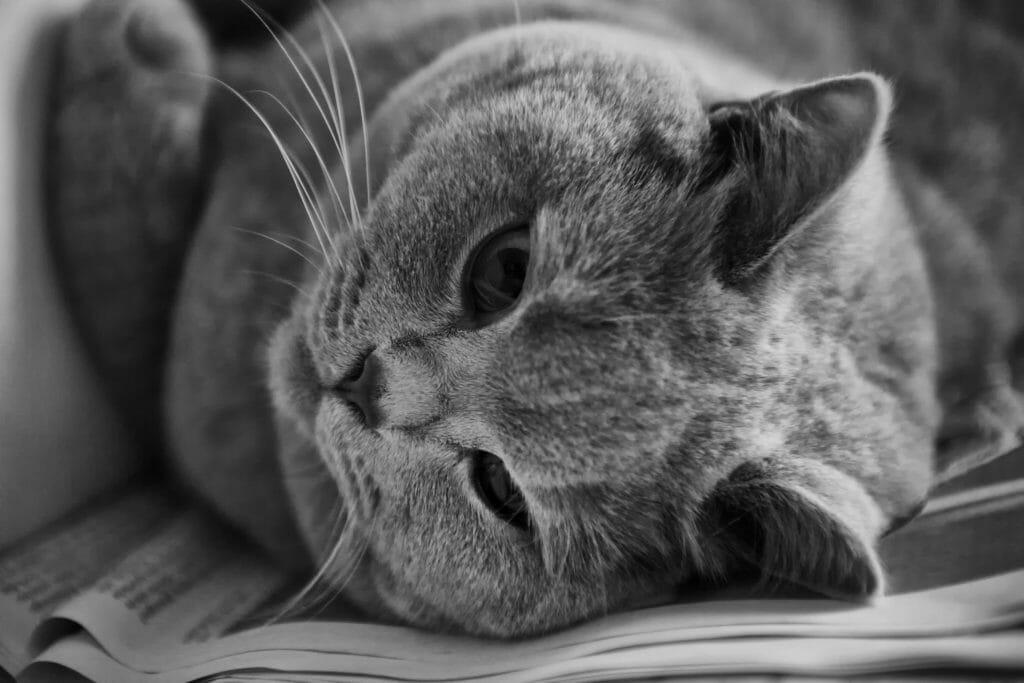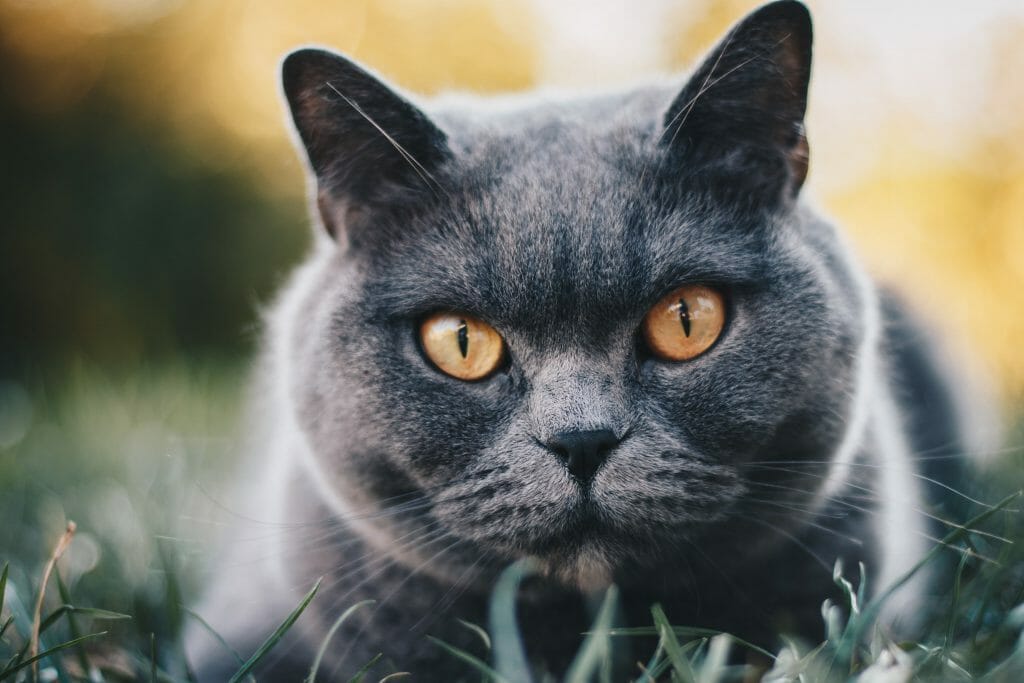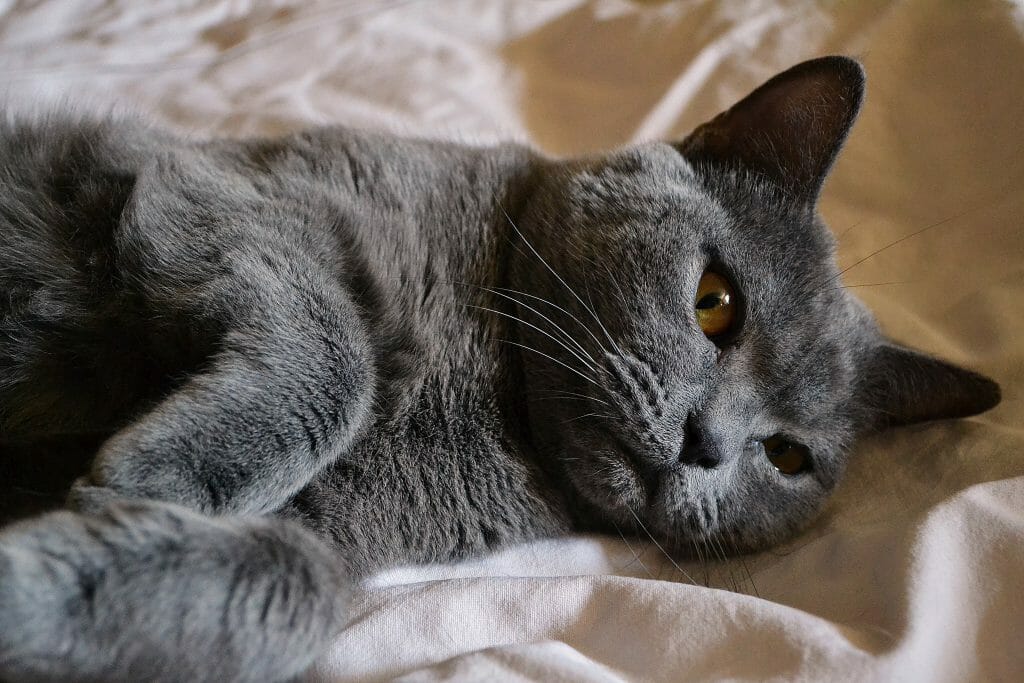Are British Shorthair Hypoallergenic? (8 Tips for Allergic Families)
The answer to that common question is no. The British Shorthair is not a hypoallergenic breed of cat. Cats that are non-hypoallergenic like British Shorthair cause an allergic reaction to people who are sensitive to cat fur. They begin showing symptoms of an allergy when dealing with cats.
No cat is entirely hypoallergenic. Though, all cat breeds are non-hypoallergenic in some way since the allergy symptoms trigger may vary among different cat breeds. Due to British Shorthair cats’ short and dense coats, some people think this breed is hypoallergenic. However, this is just a misconception because all cats produce Fel d 1 protein, an allergen that causes allergic reactions.
Suppose you wish to adopt a British Shorthair cat. In that case, you need to know all the vital information about this breed and manage your family’s allergies to this cat.


Table of Contents
Do British Shorthair Cats Shed a Lot?
No, the British Shorthair cats are average shedding cats that shed their fur regularly throughout the year. As the name implies, British Shorthair has a short hair length, so you can’t expect to spot too much of their fur all over your house when they shed. However, they release all the trapped outdoor allergens and dander in their hair when they begin to shed their short thick coat.
Also, the British Shorthair sheds more of its fur during spring since it is growing. So, better prepare for cleaning up your cat’s hair more often during the spring and fall seasons. But don’t worry, because this cat breed still sheds less than the British Longhair, which has long hair that shed regularly.
Reasons Why British Shorthair Shed Than The Usual
It could be a red flag if your British Shorthair cat sheds more hair than usual. There are specific seasons that British Shorthair cats shed a lot, making it more challenging to identify whether they are shedding too much fur. These are just some of the reasons why your cat sheds more hair than usual.
Anxiety
If your cat suffers from anxiety, there is a big chance that it will shed more hair. Like other tamed animals, cats become more anxious when there are significant changes in the environment or completely feel unwell.
However, you don’t need to worry that much because anxiety usually is temporary and disappears with time. Particularly with British Shorthairs since they can adapt instantly to new surroundings and situations.
Flea infestations
One of the reasons why your British Shorthair feline sheds more hair abnormally might be because of flea infestation. If your feline friend has fleas, it will keep on scratching itself, making it shed more fur. Fleas that were unnoticed may lead to skin disorders which could eventually lead to more hair loss.
Besides flea infestation, your feline may be subject to several fungal infections, leading to shedding excessive hair.
The diet they consume
Older cats struggle with their appetite or have a hard time with their digestion, so they might miss out on essential nutrients, which is one reason for shedding more cat hair.
Your British Shorthair may have a hard time consuming or digesting food due to swallowing their hair. Ingesting their hair could lead to gastric or digestive problems. These kinds of issues would then lead to your cat eating less food.


Tips for Family With Allergies
How Can British Shorthair Cats Cause Allergic Reactions?
When cats lick and clean their fur, their dander, and saliva that carries allergens are also transferred into the hair and become airborne. It can trigger an allergic reaction to anyone with cat allergies. Like other breeds of cats, British Shorthair cats can clean their bodies. They are capable of grooming themselves for at least five hours a day.
The British Shorthair and all cat breeds have Fel d 1 protein, a powerful and robust protein that doesn’t easily break. When people with allergies hold, pet, or brush a British Shorthair, it may cause allergic reactions.
Usually, cat allergy sufferers experience wheezing, sneezing, stuffy or runny nose, coughing, shortness of breath, facial pain because of nasal congestion, chest tightness, hives, red and itchy eyes, or skin rash. Some individuals may also obtain a severe allergy attack called anaphylaxis. The symptoms of anaphylaxis include very low blood pressure and difficulty breathing, which could cause the body to shock.


Care for British Shorthair While Managing Allergy Symptoms
Suppose you love British Shorthair and don’t want to get any other cat breed. In that case, there are helpful tips on creating an allergy-free surrounding for your and your family. Even if the most critical aspect to consider is your sensitivities, these top tips will help your stay safe. These essential tips will guide you in ensuring you are providing yourself the best opportunity to keep your allergies at bay.
1. Consult your physician on the proper anti-allergy medication.
Before adopting a British Shorthair cat, it would be better to prepare everything, such as consulting your allergist on which medication is best to manage your allergies. The allergist knows what type of medicine to prescribe. It would be easier for you and your family to tolerate the cat’s presence without getting severe allergy reactions.
2. Get closer with a British Shorthair before adopting one.
If your long-time dream is to get a British Shorthair cat, try to test first how you or your family would react to the cat. If you know someone who owns a British Shorthair cat, ask him or her to spend some time with it. Observe how your body would react as you spend some time with this furry friend.
3. Wash hands after touching or handling the cat.
Wash and clean your hands appropriately with water and soap after petting or handling the British Shorthair. You must also change your clothes because the cat’s hair could get attached to the fabric, which can only cause an allergy attack.
4. Train the British Shorthair
The British Shorthairs are independent and intelligent cats. They are easy to train since they have a high level of insight. However, this breed of cat will be happier if you engage its mind with puzzles and games. If you want to minimize the spread of allergens in your home, you can train them the following:
- Proper potty training
- Stay off the soft furnishings
- Stay away from the bedrooms
- Always stay within your compound
- Never lick anyone who has allergies
5. Always wear protection for anyone who is bathing and grooming the cat.
People with allergies must wear gloves and a face mask every time they bathe and groom the British Shorthair cat. You can also ask for help from anyone in the family who doesn’t have any allergies or hire someone to do this task. This cat breed needs to be brushed at least twice a week. British Shorthair cats must be brushed daily during seasonal changes because the cat’s coat may be thickening or thinning.
6. Make sure the bedroom is off-limits to the cat.
Bedrooms have linens and fabrics that can trap hair and allergens. It is a bad idea to allow your British Shorthair cat to stay in your bedroom. Making sure to keep your bedroom a cat-free space guarantees that you will have a sneeze-free sleep.
7. Secure your residence
British Shorthair, as well as other cat breeds, tend to be mischievous when alone and bored. Having extra protection in your home will help you and your family manage allergies easily. You may want to invest in these allergy-combating devices:
- A high-quality vacuum cleaner
- An air purifier appropriate for homes with pets
- HEPA Filters
8. Clean your home regularly.
Having a British Shorthair cat roaming around the house means you need to be extra conscious of the cleanliness in your home. Make sure to vacuum surfaces and clean common areas thoroughly. It will help reduce and get rid of the presence of fur and dander and prevent the spread of allergens in your home.
